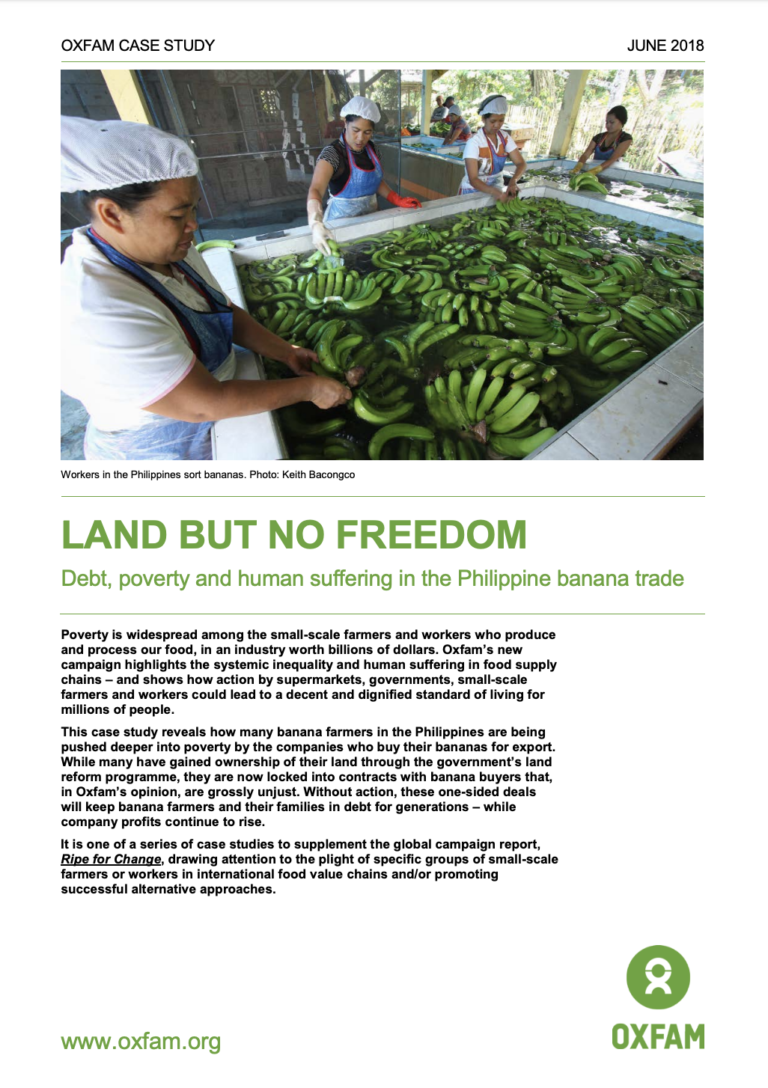This case study is one of a series of case studies to supplement the global campaign report, Ripe for Change, drawing attention to the plight of specific groups of small-scale farmers or workers in international food value chains and/or promoting successful alternative approaches.
Poverty is widespread among the small-scale farmers and workers who produce and process our food, in an industry worth billions of dollars. Oxfam’s new campaign highlights the systemic inequality and human suffering in food supply chains– and shows how action by supermarkets, governments, small-scale farmers and workers could lead to a decent and dignified standard of living for millions of people.
This case study reveals how many banana farmers in the Philippines are being pushed deeper into poverty by the companies who buy their bananas for export. While many have gained ownership of their land through the government’s land reform programme, they are now locked into contracts with banana buyers that, in Oxfam’s opinion, are grossly unjust. Without action, these one-sided deals will keep banana farmers and their families in debt for generations– while company profits continue to rise.

